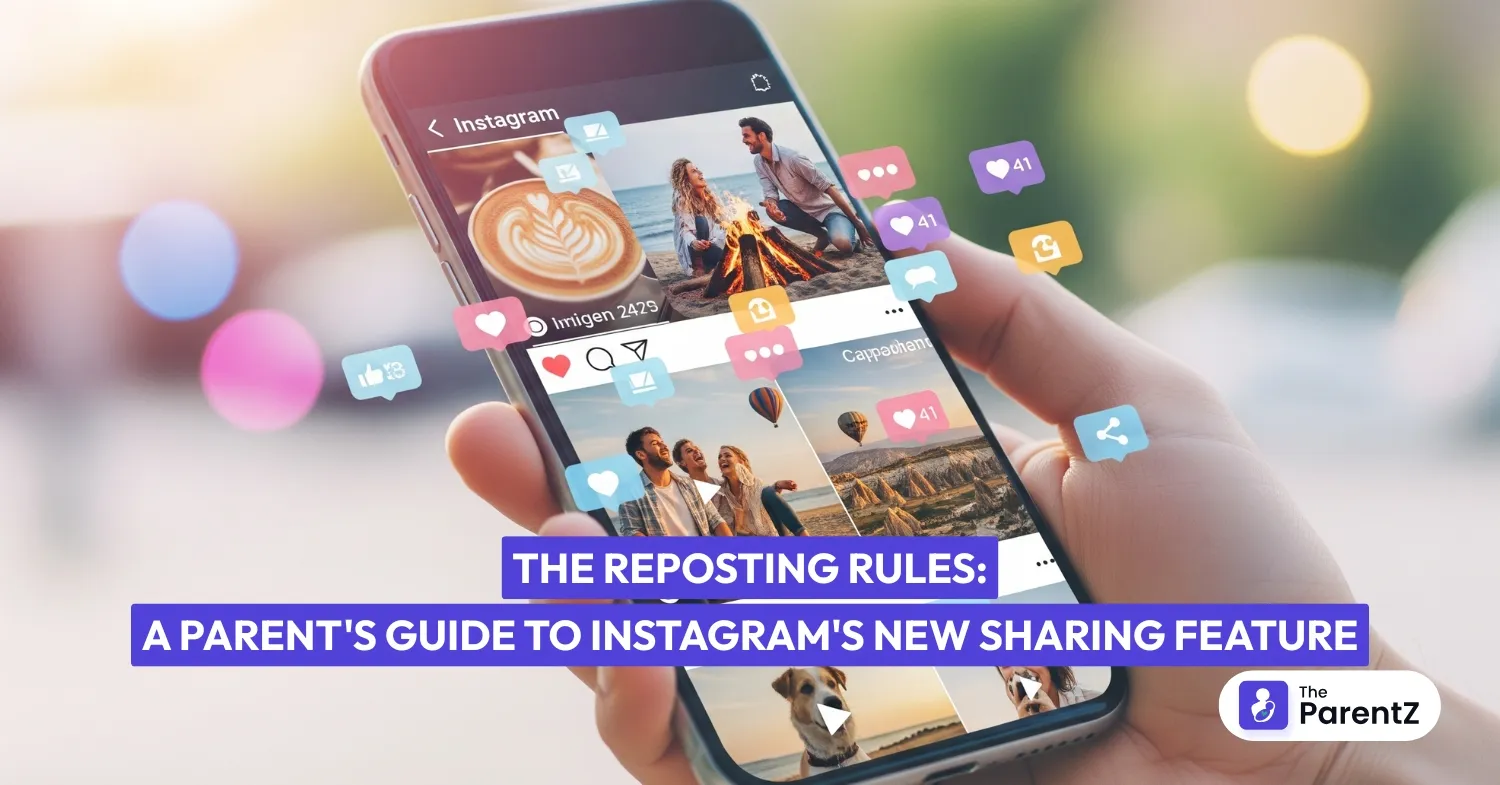Your teen just showed you something hilarious on their phone, a reel they "reposted" on Instagram. Wait, reposted? When did that become a thing?
Instagram's new reposting feature is changing how kids share content, and it's happening fast. One day, your teen could only share posts to their temporary Stories, and now they can permanently add other people's content to their profile. As a parent, this shift affects how you think about your child's digital footprint, online safety, and even your own social media presence if you're creating content too.
Don't worry, you don't need to be a social media expert to understand what's happening. This Instagram reposting guide breaks down everything you need to know, whether you're a parent who barely uses Instagram or someone who's actively creating content alongside your teens.
What Exactly Is Instagram's Reposting Feature?
Think of reposting like sharing a friend's Facebook post, but on Instagram. Before this update, if your teen wanted to share someone else's content, they could only put it in their Stories (where it disappears after 24 hours) or send it privately to friends. Now, they can "repost" any public reel or post, and it stays permanently on their profile in a dedicated "Reposts" tab.
Here's how it works: Your teen sees a funny reel or inspiring post, taps a repost button (it looks like two arrows in a square), can add their own comment, and boom – it's now part of their profile. The original creator's username stays visible, and anyone who clicks on the repost goes back to the original content.
Why This Matters for Parents
This feature changes how content spreads on Instagram. When your teen reposts something, it shows up in their followers' feeds as a recommendation. This means the content they choose to share becomes part of their digital identity and can influence their friends.
For parents creating content or teens who are content creators, reposts can be a double-edged sword. On the positive side, if someone reposts your content, it can reach new audiences without you paying for promotion. Your content gets organic exposure beyond your current followers. However, you also lose some control over how and where your content appears.
The New "Friends" Tab: What It Means
Instagram also introduced a "Friends" tab in the Reels section. This shows your teen what their friends have liked, created, reposted, or commented on. It's designed to spark conversations and help friends discover content together. While this can help kids feel more connected, it also means their activity is more visible to their friend group.
What to Teach Your Kids About Reposting
- Think Before You Repost: Just like with their own content, remind your teen that reposts reflect on them. A funny meme might seem harmless, but if it contains inappropriate language or controversial topics, it could affect how others see it.
- Check the Source: Teach your kids to look at who originally created the content. Is it from a reliable source? Does the creator have a good reputation? Reposting misinformation or content from questionable accounts can damage their credibility.
- Respect Others' Work: While reposting gives credit to the original creator, it's still important to be thoughtful about sharing someone else's work. Would they want this shared? Is it appropriate to repost?
- Privacy Considerations: Even though reposts only work with public content, remind your teen that their reposting activity is visible to their followers and friends through the Friends tab.
Red Flags to Watch For
As you monitor your teen's social media activity, keep an eye out for concerning repost patterns. Are they sharing content that promotes risky behavior? Are they reposting from accounts that spread misinformation or inappropriate content? Their reposts can give you insight into what they're consuming and what influences them.
Also, watch for cyberbullying through reposts. Sometimes, kids might repost content to mock someone or participate in online drama. This social media safety for parents' consideration is crucial because reposting can amplify harmful content.
For Parent Content Creators
If you're creating content yourself, understand that reposts can help your reach but also mean your content might appear in contexts you didn't choose. Consider whether you're comfortable with your content being reposted and associated with other people's profiles.
You can't control who reposts your public content, but you can use this feature strategically. Create content that you'd be proud to see reposted, and remember that reposts can introduce you to new audiences.
Setting Boundaries and Having Conversations
Don't just set rules about reposting – explain the reasoning behind them. Help your teen understand that their digital footprint includes not just what they create, but what they choose to amplify by reposting.
Consider having regular check-ins about their social media activity. Ask them about interesting content they've seen or reposted recently. These conversations can help you understand their interests and provide opportunities to discuss digital citizenship.
Conclusion
Instagram's reposting feature isn't inherently good or bad; it's a tool. Like any social media feature, its impact depends on how it's used. By understanding how reposts work and maintaining open communication with your teen, you can help them use this feature responsibly while staying connected to their digital world.





Be the first one to comment on this story.